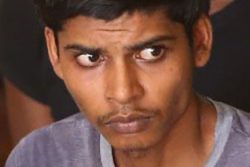Dear Editor,
David Granger headed the GDF’s first political training and indoctrination unit, the Education Corps, formed in the early 1970s. This unit was set up to politicize the army and to bring socialism to the armed forces. The army became a bastion of ideology thereafter. National Service and many of the socialist agendas of the PNC government were implemented through and with the direct and heavy involvement of the armed forces. Donald Ramotar is the closest thing to a true-blooded communist left within the PPP hierarchy. In his past days of PPP agitation, Donald Ramotar created his legend not from his intellectual depth, his academic superiority or his stellar competency but from his dogged determination to an ideology that many within the PPP have now abandoned for a few dollars more, or have given strategic acknowledgement to only for the sake of getting something in return. Donald Ramotar may not have possessed many special characteristics for the General Secretary’s position, but he possessed ideological purity and strength. Frankly, this man is probably the only one within the PPP that stayed true to the PPP roots of diehard communist ideology while the others departed with haste after Comrade Cheddi departed.
This election presents two candidates of the past leading the political behemoths (PPP and PNC) into battle, and an unproven candidate from the present leading a small guerrilla force. What is pivotal about this election is the ideological foundations of the two candidates of the two main parties in the PNC and the PPP. Both Granger and Ramotar lionize party paramountcy. Granger saw no problem with it when the PNC started politicizing the army. If Ramotar was in Granger’s shoes he would have done the same. Ramotar saw nothing wrong with it when the PPP started politicizing everything. Both of these candidates bring this flawed political philosophy of party paramountcy to this nation.
Their ideological underpinnings rest on socialism and communism. David Granger and Donald Ramotar sees nothing wrong with the subservience of the state to a centralized governance structure and statist control policies. If elected, we will likely witness even greater centralization of the state. Given Granger’s military background, his respectability within the military complex and his genuine desire to fix the security situation, we could have those gains at the expense of the creation of a strong police state. In Ramotar’s case, the halting or even reversal of privatization may occur. In the final assessment, we are likely to become driven by overarching ideology that controls our lives if Granger or Ramotar is elected. Any attempts at the implementation of rigid ideology in this country have failed even with immense power granted by dictatorship or by democracy. The future is certainly cloudy with these two candidates on the issue of their ideological histories. On an aside, democratic centralism worked again as the contenders to the throne all stepped aside in the name of party paramountcy to allow Ramotar to take the crown.
Yours faithfully,
M Maxwell









